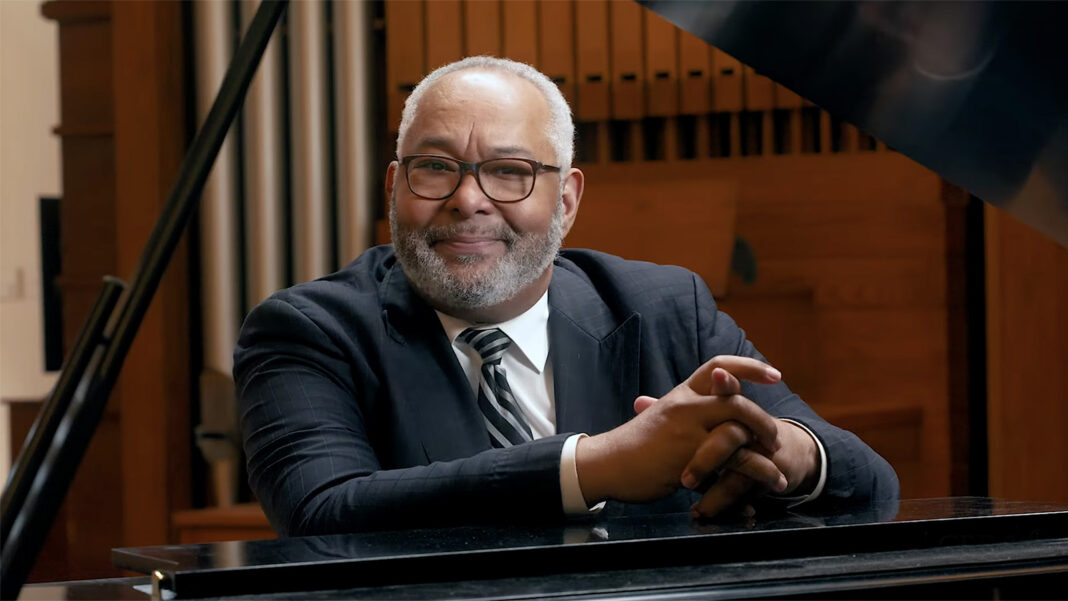Remembering W. James Abbington Jr.: A Pillar of Black Religious Music
A Legacy in Music Education
W. James Abbington Jr. was more than just an expert in Black religious music; he was a guiding light, a mentor, and a champion for many aspiring musicians. Known for his exceptional skills as an editor, teacher, and performer, Abbington made profound contributions to the landscape of congregational music before his untimely passing at the age of 65 on September 27, 2023. For over two decades, he held the position of executive editor for the African American Church Music Series at GIA Publications, where the scope of his influence was felt far and wide.
A Mentor and Friend
Abbington’s impact extended beyond the notes on a musical page. According to GIA Publications, he cultivated a supportive environment for emerging musicians, especially younger composers of color, by actively encouraging them to pursue their educational aspirations. He celebrated their achievements, fostering a sense of community and belonging in a world where such connections can be rare. His friends and colleagues remembered him fondly as “Jimmie,” a connector and advocate who leaves behind a void that will be deeply felt.
Academic Achievements
Abbington also served as an associate professor of church music and worship at Emory University’s Candler School of Theology for two decades. Just months before his passing, he accepted a prestigious role at Duke Divinity School as the first Joseph B. Bethea Professor of the Practice of Sacred Music and Black Church Studies. His enthusiasm for teaching was palpable; he had recently performed at a summer event at Duke and was looking forward to returning for the fall semester. Sadly, complications from a medical procedure led to his passing in Georgia.
Tributes from Colleagues
In the wake of his death, Edgardo Colón-Emeric, dean of Duke Divinity School, expressed profound sorrow, echoing sentiments of loss that resonated throughout the academic community. Many remembered Abbington not only for his musical talents but for the way he touched lives through education and worship. “We dreamed dreams with our first Joseph B. Bethea Chair, and we will miss the professor, the performer, and the person,” Colón-Emeric stated.
Influence on African American Church Music
Stephen Michael Newby, a music professor at Baylor University, spoke of Abbington as the “dean of African American church music.” His legacy includes an extensive catalog of published works and significant contributions to church music training, including the Academy of the Ecumenical Hampton University Ministers Conference, named in his honor in 2010. Newby recalled how Abbington inspired countless musicians to deepen both their musical skills and their faith.
Publications and Recognition
Among Abbington’s important works is the groundbreaking book “Let Mount Zion Rejoice: Music in the African American Church.” He was also a member of the editorial committee for the influential African American Heritage Hymnal. In recognition of his exemplary contributions, he was named a fellow of the Hymn Society of the U.S. and Canada in 2015. His vibrant presence at discussions and conferences contributed to a greater understanding of congregational song and worship.
A Champion of Inclusive Music
Abbington’s efforts in the African American Church Music Series reflected his belief that church music should transcend race and culture. He famously stated, “This is not ‘our’ music; it is music for the whole church.” His work ensured that the rich traditions of African American music were accessible to all, bridging gaps between different congregational communities.
Awards and Honors
His contributions did not go unnoticed in the broader landscape of religious and cultural organizations. In 2019, Abbington received the “Beautiful Are Their Feet” award from the Samuel DeWitt Proctor Conference, which recognizes individuals who support and uplift African American ministries. The conference acknowledged his unique ability to blend the traditional with the modern, deeply understanding the significance of spirituals and contemporary gospel music.
Reflections on Spirituals and Theology
In his many writings and speeches, Abbington defended the theological depth found in spirituals, arguing against the notion that they are mere simple songs. He believed that these sacred folk songs possess a richness that supports active participation in worship. As he once elaborated, “These sacred folk songs are biblically based, theologically astute, culturally relevant, accessible, and provide a tremendous liturgical vehicle for full, conscious, and active participation in worship.”
Martial Legacy Through Music
Abbington also spoke to the intersection of music and social justice, emphasizing how musicians like Martin Luther King Jr. prioritized lyrics over melody to convey messages during pivotal moments in history. His insights encouraged many to understand music as a vital expression of theology and a powerful form of community building.
Lasting Inspirations
Even in recent times, he shared wisdom on communal singing, emphasizing accessibility in worship songs. His teachings revolved around the idea that music should invite participation rather than intimidate it, and he championed works that could unite congregations—regardless of their musical backgrounds.
Through his lifelong dedication to uplifting Black religious music and its composers, W. James Abbington Jr.’s contributions will undoubtedly reverberate in the hearts of many for years to come. His legacy serves not only as a reminder of the importance of music in worship but also as a testament to the power of mentorship, community, and faith.



